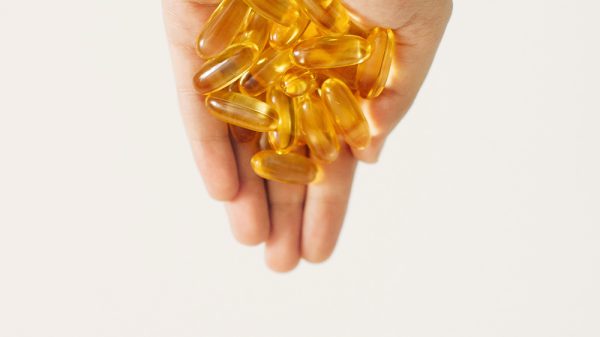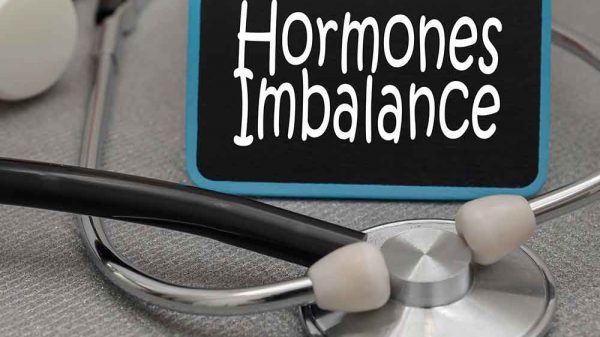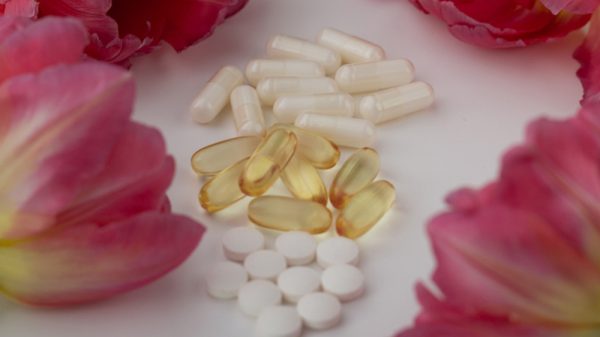Hormones are the chemical messengers in our body that help different organ systems communicate. The network of hormones in the body is known as the endocrine system. Maintaining hormonal health is crucial for supporting overall health, since hormones are involved in the gut, nervous system, reproductive system, and more. If you’re wondering how to regulate hormones naturally, then you’ve come to the right place.
Read on to find out how to improve hormone health and reduce symptoms of hormone imbalance.
The Role of Hormones in the Body
Before we dive into how to regulate hormones naturally, let’s first discuss why it’s crucial to support hormonal health in the first place.
Hormones are tiny compounds that relay messages between organ systems. Hormones allow different areas of the body to communicate, promoting homeostasis. When hormone levels are imbalanced or not working properly, biochemical processes don’t function as they should.
The body contains tons of different hormones that play different roles in the body. Here are a few examples:
- Insulin: Insulin is produced by beta cells in the pancreas. When we eat a meal high in sugar or carbohydrates, the pancreas releases insulin into the bloodstream. Insulin signals to cells and tissues to utilize glucose from the bloodstream to use for energy. Insulin helps keep blood sugar levels stable while supplying the body with the energy it needs to carry out biochemical processes.
- Female sex hormones: Female sex hormones like estrogen and progesterone help regulate the menstrual cycle. Carefully balanced levels of estrogen and progesterone stimulate ovulation and menstruation.
- Male sex hormones: Androgens like testosterone define male sex characteristics. Testosterone is also present in small quantities in females, playing a role in regulating sex drive and mood.
- Serotonin: Serotonin is often considered to be a neurotransmitter, but it is also a hormone. Serotonin regulates mood and sleep cycles in the brain. It also behaves as a communication entity in the peripheral nervous system.
- Ghrelin and leptin: Balanced levels of ghrelin and leptin are important for regulating feelings of fullness and hunger.
- Cortisol: Cortisol is a stress hormone that is released when the body is subjected to stressful circumstances. Cortisol is crucial for making more sugar available for the body’s use.
The Effect of Hormonal Imbalances on Health
Hormonal imbalance and dysfunction can contribute to health conditions. Here are a few examples:
- Insulin resistance: Insulin resistance occurs when the body doesn’t respond normally to the release of insulin, driving up blood sugar levels and leaving you at risk for type 2 diabetes.
- Polycystic ovary syndrome (PCOS): PCOS is a condition that affects female hormonal function and balance. PCOS leads to high testosterone levels in women and associated symptoms like excess hair growth, acne, lack of ovulation, cysts on ovaries, and infertility.
How to Regulate Hormones and Promote Hormonal Health
There are several diet and lifestyle strategies that can help you regulate your hormones naturally.
1. Avoid Foods That Contain Hormones
A healthy hormone diet entails staying away from foods that contain added hormones. Added hormones present in certain foods confuse the body and interfere with natural hormonal function. Steer clear of milk, which often contains high levels of growth hormones. Certain factory-raised meats are more likely to growth hormones as well. It’s a good idea to minimize your overall intake of meat. When you do eat meat, choose farm-raised, organic meat whenever possible.
2. Cut Out Junk Foods
Steering clear of junk foods is an important step in supporting hormonal health. Junk foods like saturated fat and added sugars are linked to hormone imbalances. For example, a diet high in added sugars and simple carbohydrates is connected to insulin resistance and PCOS, as well as metabolic conditions like type 2 diabetes and fatty liver disease.
Saturated fat interferes with the normal function of insulin and also contributes to the risk of developing cardiovascular disease.
You can minimize junk foods in your diet by staying away from foods like:
- Saturated fat: Saturated fat is found in fatty animal products like whole milk, cream, yogurt, cheese, steak, and bacon. Always choose nonfat or low-fat dairy and meat products like nonfat Greek yogurt and chicken breast.
- Added sugar and refined grains: To minimize your intake of added sugars and refined grains, stay away from foods like soda, candy, pastries, white bread, white pasta, and white rice. Always check the nutrition facts and ingredients label of packaged foods.
- Processed foods: Processed foods have undergone an industrial process that has taken away nutrients and added ingredients. Processed foods tend to be higher in sugar, saturated fat, preservatives, and other harmful chemicals that can interfere with hormone function.
3. Getting Enough Protein
Protein is a vital part of our diets and provides amino acids that may help promote hormonal balance. Amino acids are the building blocks of protein that are biochemically necessary for the body and there are two types: nonessential amino acids and essential amino acids. Nonessential amino acids can be produced by the body.
In contrast, essential amino acids must be obtained from the foods we eat. The body requires optimal ratios of essential amino acids to function properly. Essential amino acids are crucial in the production of hormones, neurotransmitters, enzymes, and muscle tissue. For example, tryptophan is a precursor in the formation of tryptophan.
Moreover, an Italian pilot clinical study found that supplementation with essential amino acids helped reduce high insulin and high testosterone levels in women with PCOS. (1)
You can ensure that you’re getting the essential amino acids you need by eating high-quality animal proteins like low-fat cheese, chicken breast, nonfat Greek yogurt, and fish. If you are following a plant-based diet, it’s important to ensure that you’re eating a variety of vegetable proteins on a daily basis, such as beans, whole grains, nuts, seeds, and soy. Supplementation is another excellent strategy for ensuring that you’re getting optimal ratios of essential amino acids.
4. Strive for Weight Loss
If you are overweight, striving for a healthy weight is one of the most effective strategies for encouraging hormone balance. Women with PCOS may see significant improvement in their symptoms after weight loss alone. Here are a few healthy, natural ways to achieve your weight loss goals and improve hormonal health:
- Monitor calorie intake: It’s important to avoid both undereating and overeating. Undereating and overeating can lead to blood sugar dips and spikes, wreaking havoc on hormonal health. Make sure to eat the appropriate number of calories that supports your ideal, healthy body weight and physical activity level.
- Exercise: To achieve weight loss, it’s important to establish a calorie deficit. Getting your heart rate up regularly can help you burn more calories and counteract weight gain and obesity, while also improving cardiovascular health.
- Increase muscle mass: Strength training and high protein consumption can help you increase your lean body mass, which in turn increases your metabolism and aids fat loss.
5. Avoid Pesticides
Pesticides are chemical substances that are designed to get rid of pests, such as insects. A review published in Reproductive Biology and Endocrinology found that pesticide exposure has a negative impact on the function of female sex hormones, affecting the ovaries, ovulation, and fertility. (2) Exposure to pesticides may also impact the function of the nervous system, thyroid, and pituitary glands. (2)
Here are a few tips for avoiding pesticide exposure:
- Use nontoxic pesticides: Certain natural or nontoxic substances like baking soda or soap may be a good alternative for pesticides, depending on the purpose.
- Eat organic: Organic foods are foods that have been grown without the use of pesticides and harmful chemicals.
- Use pesticides properly: If you are using pesticides, it’s critical to use the appropriate amount while also avoiding inhalation or contact with skin.
6. Omega-3 Fatty Acids
Omega-3 fatty acids are potent antioxidants that help regulate hormone levels and may help resolve symptoms of PCOS. Are you wondering how to lower androgen levels in females naturally? Omega-3 fatty acids may help. Omega-3 fatty acids can be found in a variety of both plant and animal foods.
Alpha-linolenic acid (ALA) is a type of omega-3 fatty acids found in plant foods. You can get more ALA in your diet by eating foods like flaxseeds, chia seeds, pecans, and walnuts.
Eicosapentaenoic acid (EPA) and docosahexaenoic acid (DHA) are omega-3 fatty acids found in fish. To get more EPA and DHA in your diet, eat more salmon, mackerel, and sardines.
Increasing the content of all healthy fats like monounsaturated and polyunsaturated fats is a good idea, because it reduces inflammation and keeps you full for longer. Olive oil, avocado, and almonds are examples of healthy sources of fat.
7. Fruits and Vegetables
Fruits and vegetables are important components of an anti-inflammatory diet, since they are packed with vitamins, minerals, fiber, and antioxidants. The antioxidants in fruits and veggies may help improve the function of hormones like insulin while also improving symptoms of hormonal disorders like PCOS.
Fruits and veggies to add to your diet include spinach, kale, celery, carrots, eggplant, apples, oranges, strawberries, and blueberries.
8. Adequate Vitamin D Levels
Getting adequate vitamin D is critical for supporting overall health and wellness. Vitamin D functions as a hormone itself and is therefore able to influence the function of numerous organ systems. (3)
Vitamin D influences gene expression, muscle synthesis, bone health, immune system function, and the balance of hormones in the body. Much of the population is likely deficient in vitamin D since it is so difficult to obtain from foods alone. Fatty fish like salmon and mackerel are the main foods that are rich in vitamin D. Smaller amounts of vitamin D are also present in eggs, mushrooms, and fortified milk and cereal.
The skin synthesizes vitamin D in response to sun exposure. However, if you live in an area that gets little sunlight, supplementation is important for keeping vitamin D at a healthy level. Vitamin D supplementation works best when paired with calcium and magnesium supplementation.
9. Reduce Stress and Anxiety
Imbalanced hormones and anxiety are related. Chronic stress and anxiety are connected to chronically high levels of cortisol. High levels of cortisol over a long period of time can contribute to high blood sugar, inflammation, and hormonal imbalances. You can help reduce your cortisol levels and support adrenal and thyroid health by incorporating relaxation techniques and strategies into your daily routine. Here are a few ideas.
- Getting regular sleep: Getting regular, high-quality sleep is key to reducing inflammation levels and regulating hormones. Trying to set a regular bedtime each evening and establishing an evening routine.
- Yoga and meditation: Practicing yoga and meditation each day can help the mind stay grounded and reduce the focus on anxious thoughts.
- Deep breathing: Deep breathing is an excellent way to manage physiological symptoms of stress and anxiety in the moment. Plus, it’s an easy strategy that can be done anywhere and in any situation.
10. Take Care of Your Gut
Gut health is connected to other organ systems, including the endocrine system. Did you know that the vast majority of the body’s serotonin is produced in the gut? Keeping the gut healthy and functioning smoothly is vital for supporting optimal hormonal health, as well. Here are a few tips for improving gut health:
- Eat plenty of fiber: Dietary fiber is a crucial part of the gut-friendly diet and hormone balancing diet. To increase your fiber intake, reach for foods like fruits, veggies, beans, and whole grains. Fiber feeds the good bacteria in the gut, allowing healthy gut bacteria to flourish.
- Eat foods with probiotics: You can improve your gut health by eating foods with healthy gut bacteria. Yogurts, kefir, sauerkraut, and kimchi are foods that contain healthy bacteria for the digestive system.
- Consider taking a probiotic supplement: It may be difficult to consume probiotic-rich foods on a daily basis. As a result, adding a probiotic supplement to your daily regimen may be helpful.
11. Limit Alcohol Intake
If you’re experiencing signs of hormonal imbalance, cutting out alcohol may help improve your symptoms. Research published in Endocrinology and Metabolism Clinics of North America found that alcohol consumption impacts healthy hormonal function because of its impact on the hypothalamus, thyroid, and pituitary glands. (4)
If you are a regular drinker, it may be worth a try to cut out alcohol and evaluate your symptoms. You may find that your hormonal health drastically improves after you cut alcohol out of your lifestyle. In addition to improved hormonal symptoms
Talk to Your Doctor
It’s always important to make an appointment with your doctor. Your physician will administer a hormonal imbalance test, provide a diagnosis, and a recommend treatment plan to manage your symptoms. A healthy diet and lifestyle changes may help improve many cases of hormonal imbalance. However, many individuals may also benefit from medication interventions. Your physician will decide which medication works for your specific needs. Here are examples of medications that may help you manage your condition:
- Hormone replacement therapy: Hormone replacement therapy contains female sex hormones like progesterone and estrogen. Hormone replacement therapy helps manage symptoms of perimenopause and menopause like hot flashes, when females naturally experience a decrease in sex hormones.
- Birth control: Birth control may help regulate the menstrual cycle in women with PCOS.
- Spironolactone: Spironolactone helps reduce testosterone levels in women with PCOS, which may help manage symptoms like hirsutism and hormonal acne.
- Thyroid hormones: Individuals who have thyroid conditions like hypothyroidism may be prescribed thyroid hormones.
How to Regulate Hormones Naturally: Conclusion
Hormones serve as the body’s communication system. When hormones aren’t working as they should, the body’s biochemical processes become imbalanced. Thyroid dysfunction, metabolic conditions, inflammation, and PCOS are all associated with hormone imbalance. Luckily, there are steps you can take to regulate hormones naturally. Eating lots of fruits and veggies, omega-3 fatty acids, protein, and fiber helps reduce inflammation and improve hormonal function. Weight loss, avoiding alcohol, and reducing stress are also helpful strategies for regulating hormones naturally.

References:
(1) https://pubmed.ncbi.nlm.nih.gov/18854802/
(2) https://www.ncbi.nlm.nih.gov/pmc/articles/PMC1524969/























